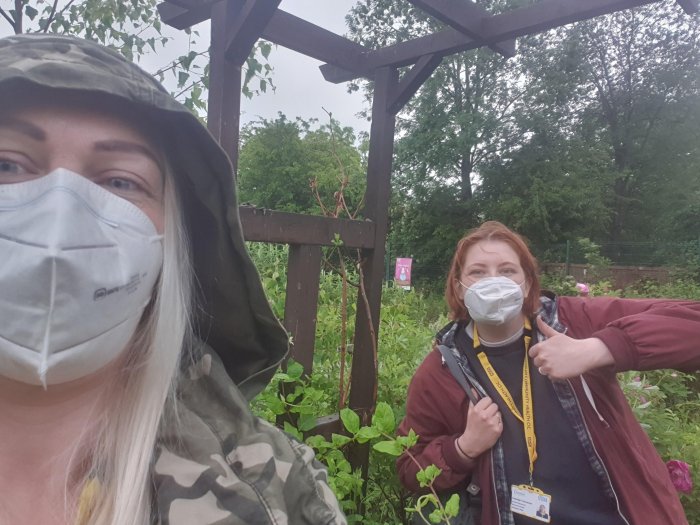Two Art Therapists who completed their training at Sheffield Health and Social Care NHS Foundation Trust (SHSC) are part of the Spectrum People team which recently won a prestigious BBC Radio 4 All in the Mind Award.
The Radio 4 All in the Mind Awards celebrates brilliant mental health care. They recognise the people – the unsung heroes – who helped make the difference.
Leanne Warren and Kayleigh Townsend were among the team who won the group award as part of Spectrum People, a Wakefield based charity that supports people who are facing barriers in their lives due to issues including mental ill health, addiction, homelessness, offending behaviour, learning difficulties and other disabilities.
At Spectrum People, Leanne and Kayleigh were able to put their training into practice and used the charity’s community garden and allotment to support people through the COVID-19 pandemic. Providing therapy in an outside setting for people who were isolated by the pandemic.
As Art Therapists Leanne and Kayleigh use art to help people express how they feel and address emotional issues in their lives. Both trained at SHSC through the Art Therapy Northern Programme which has been established for more than 40 years and offers formal training and education in art therapy from our range of experts.
Spectrum People were nominated by Dawn, a campaigning poet and artist who had accessed Art Therapy and social support throughout the different stages of the COVID-19 pandemic.
Leanne Warren, Art Therapist at Spectrum People said: “For us, being nominated for the award was enough. When Spectrum People were announced as the award winners we were surprised and joyful! The other nominees were really strong, we are so proud to be held in such high regard.”
Dr Chris Wood, one of the Art Therapy Northern Programme lecturers at SHSC, said: “I’m so proud of what Leanne and Kayleigh have achieved since they graduated in 2019. They’ve put their training to great use by supporting people who had often lost their own support networks overnight due to the COVID-19 pandemic.”
